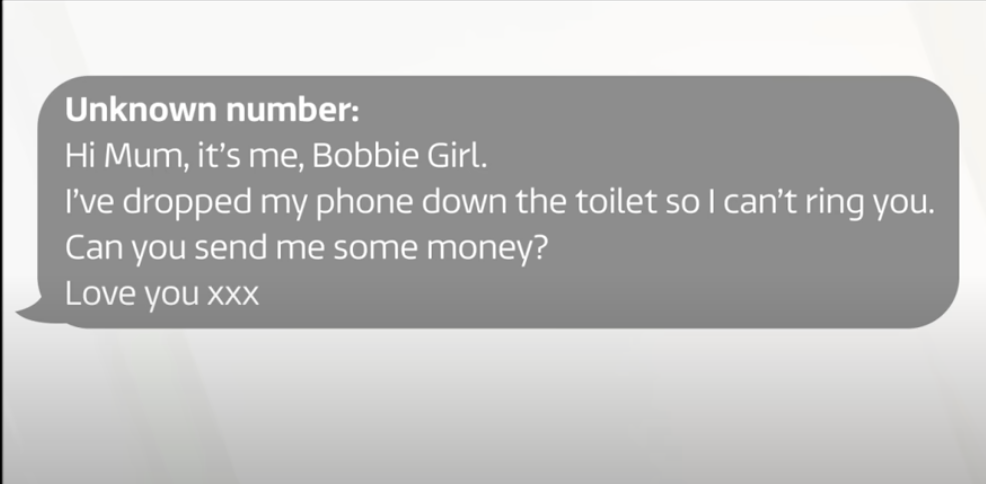
Picture this: you're having your morning cup of tea when your phone buzzes with a WhatsApp message from your daughter. 'Hi Mum, I've smashed my phone and I'm using a friend's. Can you help me with an urgent bill payment?'
It sounds perfectly reasonable–except your daughter is sitting in her kitchen 500 kilometres away with her phone working perfectly fine.
This scenario plays out thousands of times daily across Australia, as scammers increasingly turn to encrypted messaging platforms like WhatsApp, Telegram, and Signal to bypass the sophisticated scam-blocking technology that telecommunications companies have built into their networks.
The latest figures from the National Anti-Scam Centre show that while overall scam losses fell by 25.9 per cent to $2 billion in 2024, scammers are becoming increasingly sophisticated in their methods. What's particularly concerning is who they're targeting most aggressively.
[blockquote]
'Reports to Scamwatch indicate scammers are targeting older Australians with retirement savings, who may be looking for investment opportunities'
[/blockquote]
The statistics paint a troubling picture: older people suffered the greatest harm at the hands of scammers in 2023.
People over 65 were the only age group to experience an increase in reported losses, with losses for this demographic increasing by 13.3 per cent to $120 million.
But here's what makes this trend even more concerning – in the first four months of 2025 alone, older Australians aged 65 and over reported the highest total losses of any age group, totalling $33.1 million.
Telstra's cyber expert Darren Pauli explains the fundamental challenge: 'While encryption is a wonderful thing, the nature of these platforms make it tough for Telco's to monitor for potential scams. It protects banking, it protects everything. And it doesn't care about what the contents are that it's protecting. It just works.'
Recent data from financial services company Revolut shows just how dramatically scammers have pivoted to these platforms, with Telegram seeing a 121% increase in scam cases in the latter half of 2024, while WhatsApp experienced a 67% rise.
The appeal for scammers is obvious: Telegram offers a high level of anonymity to users, making it an attractive option for scammers who want to hide their true identities or impersonate others.
Meanwhile, with Telegram, messages are not end-to-end encrypted by default, despite many users believing they are fully protected.
The most heartbreaking scams are those that exploit our deepest relationships. The infamous 'Hi Mum' scam has evolved far beyond its original form.
Warning signs of 'Hi Mum' scams
Contact from unknown number claiming to be family member
Urgent request for money due to 'emergency'
Claims their phone is broken/lost/damaged
Asks you to save new number and contact via WhatsApp
Refuses phone calls, claims 'line is scratchy'
Requests bank transfers to unfamiliar accounts
More than 1,150 Australians fell victim to 'Hi Mum' scams in just seven months of 2022, with total reported losses of $2.6 million.
Unfortunately, these scammers specifically target women and older Australians, with 82 per cent of family impersonation scams reported by people over 55.
But the technology is advancing rapidly. One of the latest versions uses cybercriminals who clone voices to extort money, creating deepfake audio with as little as three seconds of genuine audio taken from social media profiles, voicemails, or videos.
Source: A Current Affair / Youtube.
Recruitment scams have become particularly sophisticated, with scammers contacting victims unexpectedly through encrypted message platforms like WhatsApp, Signal or Telegram.
These fake job offers and recruitment scams are particularly nasty as they target people who are vulnerable, offering work from home opportunities with good remuneration and quick interview processes.
The scammer, posing as a supervisor, will explain the job on messaging apps, help set up cryptocurrency accounts, and pay small amounts initially to build trust. Before long, they'll say you need to recharge your cryptocurrency account to get earnings.
While encryption makes monitoring difficult, Telstra hasn't been sitting idle.
In the 12 months to June 2024, Telstra blocked more than 18 million scam calls a month, almost double the number from the previous year, and intercepted an average of more than 8 million scam text messages monthly.
The company has also launched new technology. Since starting rollout at the end of December 2024, Telstra Scam Protect warning messages have been applied to over 10 million calls, alerting Australians to exercise caution on potentially harmful calls.
Currently, Telstra blocks more than 11 million scam calls on average every month. Their Scam Protect system has flagged over 100 million scam calls since launch – that's more than 80 suspicious calls every minute.
Protect yourself from messaging app scams
Never send money to unknown contacts, even if they claim to be family
Always verify identity by calling the known number
Set up family code words that only you know
Don't click links in unsolicited messages
Enable two-factor authentication on all accounts
Report suspicious messages to Scamwatch immediately
Your practical protection strategy
The good news is that you're not powerless. Here are proven strategies that work:
• Create a family verification system. Have a code word that only you and your family have discussed in person.
• Always independently verify. If contacted by someone claiming to be your son, daughter, or relative, call them on the number already stored in your phone.
• Trust your instincts. If a call, text, or email doesn't sound right – hang up or do not reply.
• Use available technology wisely. Multi-factor authentication is one of the strongest ways to protect yourself online and make it harder for scammers to access your accounts.
Did you know?
Scammers are most active on Fridays and Saturdays, with Telstra blocking 11% more scams on these days. They also target the early morning hours between 1am–4am when people are more vulnerable to urgent-seeming messages.[/infoboxcontent]
Despite the increasingly sophisticated methods used by scammers, coordinated efforts across telecommunications and banking industries are showing results, with the National Anti-Scam Centre's report recording that 25% drop in losses between 2023 and 2024.
In February 2025, Federal Parliament passed legislation introducing a new scam prevention framework designed to combat scam activity through regulatory obligations on businesses in telecommunications, digital platforms, and banking sectors.
The reality is that this is an ongoing battle. As Telstra's Darren Pauli notes: 'If they weren't such terrible people I'd almost have some sympathy for them' – referring to how the industry's blocking efforts are frustrating scammers and costing them money.
Your awareness and vigilance remain the most powerful weapons in this fight. The encrypted messaging apps themselves aren't the enemy–they provide valuable privacy and security for legitimate communications.
The key is knowing how to use them safely while staying alert to those who would exploit them.
Read more: Criminals Want to ‘Rent’ Your Bank Account. Have You Heard About This New Scam Trend?
Original article: https://www.news.com.au/technology/...s/news-story/bdcb7003e4e6fea7232a44c100311da5
Warning as 'Hi mum' scam dupes Australian parents – The New Daily
https://www.thenewdaily.com.au/finance/consumer/2022/08/12/hi-mum-scam-whats-app
Australian Financial Scam Statistics 2024 – Jacaranda Finance
https://www.jacarandafinance.com.au/general/financial-scam-statistics/
Australians better protected as reported scam losses fell by almost 26 per cent – National Anti-Scam Centre
https://www.nasc.gov.au/news/austra...ported-scam-losses-fell-by-almost-26-per-cent
Scam alert – Re-emergence of 'Hi Mum' scam – ACMA
https://www.acma.gov.au/articles/2024-01/scam-alert-re-emergence-hi-mum-scam
Targeting Scams Report 2024 – Scamwatch
https://www.scamwatch.gov.au/system/files/targeting-scams-report-2024.pdf
Spotting WhatsApp Job Scams – Adecco Australia
https://www.adecco.com.au/news-and-...sapp-how-to-spot-and-avoid-them-in-australia/
Jobs and employment scams – Scamwatch
https://www.scamwatch.gov.au/types-of-scams/jobs-and-employment-scams
Top social media scams: 7 WhatsApp scams to avoid – Eftsure
https://www.eftsure.com/blog/cyber-crime/top-social-media-scams-7-whatsapp-scams-to-avoid/
Scam losses decline, but more work to do as Australians lose $2.7 billion – ACCC
https://www.accc.gov.au/media-relea...ore-work-to-do-as-australians-lose-27-billion
Have you or someone you know encountered suspicious messages on WhatsApp, Telegram, or other messaging apps? We'd love to hear your experiences and any additional tips you might have for keeping our community safe from these evolving scams.







